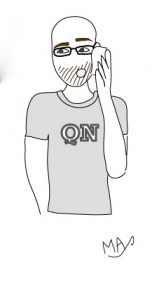Tribunal bedeviling Hezbollah
 In the kind of notoriety that really excites a geek like me, my favorite blogger on Lebanon has interviewed me about A Privilege to Die. Qifa Nabki talked to me about what it is, exactly, that I’m writing and arguing about Hezbollah, and delves into some of his favorite topics – like Hezbollah’s influence on the wider Arab world and the social-ideological recipe that distinguishes Hezbollah from other mass-mobilization Islamist movements.
In the kind of notoriety that really excites a geek like me, my favorite blogger on Lebanon has interviewed me about A Privilege to Die. Qifa Nabki talked to me about what it is, exactly, that I’m writing and arguing about Hezbollah, and delves into some of his favorite topics – like Hezbollah’s influence on the wider Arab world and the social-ideological recipe that distinguishes Hezbollah from other mass-mobilization Islamist movements.
He asks how Hezbollah might respond if the International Special Tribunal investigating the 2005 murder of former Lebanese Prime Minister Rafik Hariri were to indict some Hezbollah members.
During my reporting trip to Lebanon in September I was surprised by Hezbollah’s uncompromising position on this issue. Party officials whom I interviewed echoed their leader Hassan Nasrallah’s absolutist stance: Hezbollah wouldn’t turn over any members, Hezbollah wouldn’t even recognize the Tribunal’s authority, and Hezbollah would ask the rest of the Lebanese government to adopt Hezbollah’s position.
If Hezbollah sticks to its guns on this issue, so to speak, it could quickly escalate into internal violence. During the crisis from 2006 to 2008, Hezbollah could argue that it was willing to negotiate so long as the other political parties in Lebanon were willing to give Hezbollah the one-third of power it was due demographically and by its share of seats in parliament. In the event of a Tribunal indictment of Hezbollah operatives, however, Hezbollah will find itself in a complicated position. If the indictment presents compelling evidence, Hezbollah will find its pure image substantially tarnished. And if Hezbollah is willing to withdraw from the government and go to war against it, rather than surrender any indicted members, it will risk alienating a broad segment of the Lebanese public that until now has supported Hezbollah’s Islamic resistance project, or at least, not stood in its way.

